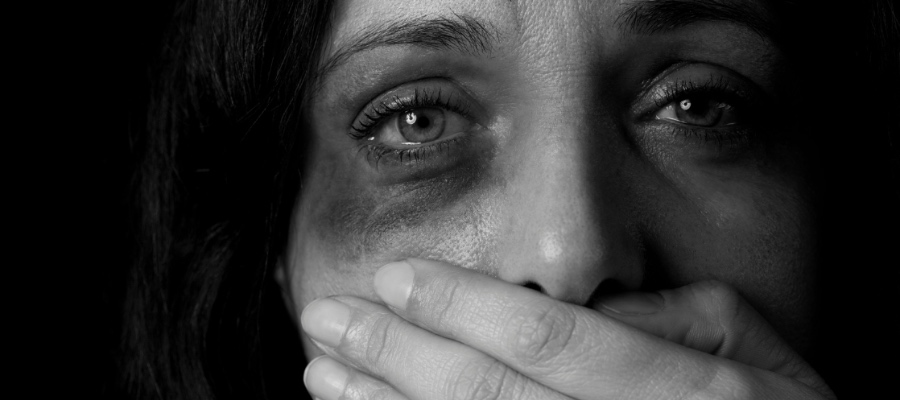The Baha’i teachings offer profound insights into the complexities of human relationships, particularly concerning critical social issues, such as domestic violence. A pressing concern in contemporary media is the extent to which movies romanticize harmful behaviors, including domestic violence and sexual harassment. With an increasing number of films featuring narratives that blur the lines of consent, it becomes imperative to analyze this phenomenon through the lens of Baha’i principles. This discussion aims to explore the implications of media portrayals on societal perceptions of domestic violence and propose constructive responses rooted in Baha’i teachings.
To begin with, it is vital to delineate the concept of romanticizing domestic violence. Often, films depict violent and abusive relationships as passionate or desirable, creating a misleading narrative that may inadvertently normalize such behavior. The portrayal of love intertwined with abuse can foster a culture that trivializes the severity of domestic violence. This insidious normalization can adversely impact both victim and perpetrator, as it perpetuates harmful cycles of behavior and discourages open discussions regarding consent and respect within relationships.
In stark contrast, Baha’i teachings advocate for the sanctity of human dignity and the necessity of respectful relationships. The principle of the oneness of humanity emphasizes that each individual is entitled to a life free from violence and degradation. According to Baha’i writings, any form of abuse, whether physical, emotional, or psychological, contradicts the divine purpose of marriage and companionship, which is centered around mutual support, understanding, and love.
Consideration must also be given to the responsibility of filmmakers and storytellers in shaping societal narratives. The artistic medium of film can influence public perception significantly. When creators choose to depict domestic violence in a romanticized light, they wield a dual-edged sword; while their stories may resonate emotionally, they simultaneously reinforce toxic societal norms. Baha’i philosophy unequivocally encourages artists to bear in mind the ethical implications of their representations, promoting content that aligns with principles of justice, equity, and truthfulness.
To further comprehend this issue, it is essential to ponder the societal repercussions stemming from the romanticization of violence. Audiences, particularly impressionable youth, may internalize these portrayals, leading to distorted views about the acceptability of controlling or abusive behavior in relationships. Such distortions can affect not only personal interactions but also broader societal dynamics, contributing to a culture of silence around domestic violence and diminishing the impetus for collective action against it. Consequently, victimization is exacerbated, and the cycle of abuse perpetuates.
Moreover, Baha’i teachings emphasize the role of education in combating ignorance—a driving force behind domestic violence. Knowledge is both a shield and a sword in the quest for understanding and dismantling harmful social constructs. Educating individuals about the realities of abusive relationships, fostering discussions around consent, and debunking myths perpetuated by media can arm society with the awareness needed to critically evaluate the content they consume. This aligns with the Baha’i principle of the power of knowledge as a catalyst for personal transformation and societal advancement.
In response, it is crucial to advocate for the production of media that accurately represents the ramifications of domestic violence. Filmmakers, writers, and other influential voices within the industry have the capacity to affect change. By crafting narratives that highlight the importance of healthy relationships and emphasize the pain and suffering caused by abuse, they can challenge the status quo. The production of content that showcases recovery and healing, rather than glorification of violence, can also play a pivotal role in changing public perceptions.
This leads to the significance of community action in fostering a culture that condemns domestic violence in all its forms. Baha’is are encouraged to engage in both individual and collective efforts to promote social justice, equipped with the knowledge and principles derived from their faith. This includes participating in discussions, educational programs, and advocacy that highlight the negative effects of romanticized domestic violence in film and media. It requires a balancing act between appreciation for artistic expression and accountability for the social consequences that arise from it.
In the age of digital media, the rapid dissemination of content necessitates heightened awareness of the material we consume. Viewers must cultivate critical viewing skills that enable them to discern and challenge problematic representations. By developing a discerning lens through which films are analyzed, consumers can contribute to a culture that demands greater responsibility from creators. Engaging in discourse around media literacy can empower individuals to question narratives, reject glorification of violence, and advocate for more responsible storytelling.
In conclusion, the Baha’i teachings present a clear framework for understanding and addressing the deleterious effects of romanticized portrayals of domestic violence in film. The insights derived from these teachings guide individuals and communities towards fostering a culture of accountability, respect, and dignity. As a collective, society must champion the creation of narratives that reflect the sacredness of human relationships, challenging the pervasive normalization of violence. Through the fusion of education, advocacy, and media literacy, it is possible to develop a deeper understanding and, ultimately, a profound transformation in how domestic violence is perceived and addressed in both media and society at large.
